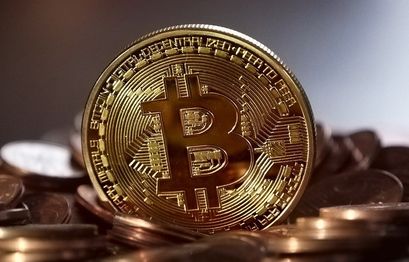
As we assemble in L.A. or the World Funding Summit (#WFSLA) it starts to dawn that, with just about every bank on the planet creating its own version of a blockchain lab this will lead to the best of times… or to the worst of times.
It’s only a matter of time before money is truly online. The big question is who will ‘own’ it?
Will it be public or private?
Most people seem oblivious to the fact that globally, privately owned banks own the financial infrastructure and create credit. They trust that governments are in control. They’re not. That’s why 10 years on we are still recovering from the biggest financial crash the world has ever known.
The current financial system is a network of toll-roads where a fee (or ‘rent’) is extracted by the owner at every juncture. Most of this is hidden from view. What is not is that banks and bankers have their fingers in the till centrally and no longer have any compunction about milking it (ie. us) for all it’s worth to bolster their salaries and bonuses.
They are the incumbents and the status quo suits them. However, it’s never enough.
Disruption is coming – whether they like it or not. And with it opportunity.
The question is no longer whether blockchain-based money and finance will disrupt the financial system – it’s when, how and what will be the upshot.
Will the infrastructure be owned by and operated for us all, the public or will it be owned by the banks? If it is controlled by the banks then history tells us for whom it will be operated and who will benefit.
But it is no guide to what a feral baking system could and would do given that much power – and trust me it’s unprecedented.
Ask anyone alive today in Greece how bad it can be when a foreign power, in their case the EU, assumes control of your monetary system. Or take a look at Zimbabwe over the last three decades. This would be far worse – and it will be global by default.
Ask yourself can the banks, working together, outsmart and outrun governments and regulators – or use them as tools – when they put their minds to it, are sufficiently motivated? How much luck have the U.S. and UK governments had in reining them in since 2008? Ask Vince Cable, who tried.
Should governments own, and govern, the money/monetary system of the future? China thinks so – and they probably can, short term at least.
In the ‘free world’ shouldn’t they be owned and run for the benefit of us all? As the public infrastructure most people, wrongly, assume the current system is?
BitCoin is open and free. It effectively provides public infrastructure. As free and open as the internet. It is far from inevitable that BitCoin (or it’s progeny/forks) will be ‘it’ Same goes for Ethereum and many others.
What we can say with certainty is that if the one percent, and especially the banks and financial behemoths find an opportunity to take control either at a national or global level, they will see it as their birthright to do so. They will just call it modern capitalism.
What it will mean for our children and grandchildren – and probably most of us as this is all moving at 10x the speed of the internet ‘bubble’ (that delivered us all into an internet age) is a new dark age.
Because if we win this battle for openness the potential is for Golden Age of unprecedented equality. if we lose it the likelihood is a mirror image of that, something much worse than we’ve ever experienced.
This is at least as important as net neutrality and the openness of the Internet. More so in fact, as it goes to the nature of the monetary system.
If we think governments, banks and the corporate world have too much control and exact too much in rents and fees now this could be as nothing if they get their way in a world of blockchain-based toll-roads – which is the most likely outcome if we are not successful in countering this imminent threat.
The answer is not regulation but debate – and democratic scrutiny.
We need to come together. The debate and to act. To ensure that future belongs to us, to our children and grandchildren.
Starting here and now.









